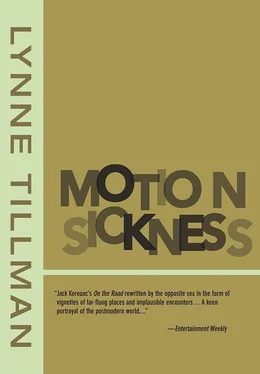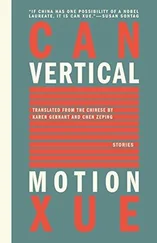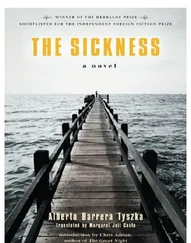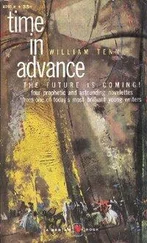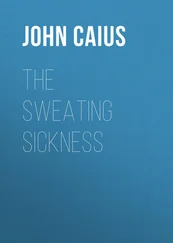That’s how I meet Clara, or Clare, as she was called in the States. Gregor thought I would find her appealing, this elderly but still youthful woman who has livid everywhere and done everything. A “classic” was his way of designating her. There is no one quite like her, he says. Gregor brings us together for dinner at a small restaurant that serves excellent octopus which Clara can’t eat and neither can L You have a sensitive stomach, she says, like me, except when I was young I could eat anything. She is trim, about my height, not short or tall, and speaks English infected by her native German.
Clara came to the States before the second war, a young woman just able to escape alone and with no possessions. I guess she’s in her early seventies, but has no gray hair, like my mother who is years younger. Clara offers to take me to the Picasso Museum the next day, always a pleasure for her, and so much more now that Generalissimo Franco is dead and one can be in Spain again and even Picasso can be in Spain again.
I meet Clara at her apartment house. She’s waiting in the lobby, looking at her watch. She takes my arm and leans against me with a presumption of intimacy that I appreciate. We walk like this to the museum. Clara claims each stair cautiously as we climb to the room where, she tells me, Picasso’s versions of Velázquez’s Las Meninas hang. She puts on her reading glasses to see the dates of the Picassos. The Velázquez, she remembers, was 1656. The Picassos were done in 1957. Velázquez’s triumph challenged Picasso, Clara explains, and so the little man — she speaks as if she had taken his measure firsthand — had to take it up, for the father must be slaughtered by the son. To illustrate Clara wrings the throat of an imaginary father.
Clara gestures to the paintings on the four walls. She thinks the Velázquez has a quiet movement, but that the Picassos show a frantic mind. Velázquez was in favor at the time he painted, while Picasso was in exile. “His are nothing like the original, the original doesn’t matter. This shows what a different time we live in. For that alone it is important work.”
Clara stands resolutely in front of one of Picasso’s portraits of the Infanta Margarita Maria. A detail from the Velázquez. It’s the figure Arlette humorously compared herself with and, for me, becomes another coincidence. Clara standing there is a superimposition, one that removes the scene for a moment of private contemplation, a moment I don’t want to make too much of. Anyway Arlette was Velázquez’s version, not Picasso’s. Still I can almost see Arlette rolling her big eyes from side to side, ruminating aloud about dark backgrounds or negative space, her feet curled under her on the couch in her living room. She might like Clara, at least admire her will and politics, I think, if not agree with her approach to art. Clara’s body is still rigid with attention. She turns to me. Shall we go? she asks, taking my arm. Nowadays museums depress me.
I can hear Gregor in her voice, the way she thinks, as if he were her son. We drink coffee in an outdoor café in the center of the city, with trees and plants encircling us rapturously. The hours pass. Clara holds me in the grip of her narrative. She tells me she is an artist, a Communist and a lesbian, what she calls a triple threat. Clara married twice in New York, both times to a sympathetic man, another homosexual. She doesn’t use the word gay and articulates each syllable of homosexual distinctly, proposing it as the proper formulation, the more complicated one commensurate to the position. She tells me that in those days, the thirties, the forties, even the fifties, that’s what they did, marry each other. She describes our time as a crueler one. She moves from one cruelty to another. During the McCarthy era even though like many others she had torn up her Party membership card years before and wouldn’t be directly implicated, not asked to testify, she was out of the U.S. more than in it, establishing residence in Paris and Rome. Her last husband was rich and today she is a well-heeled widow — she first says high-heeled, then corrects herself — maybe a contradiction, she confesses wryly, for a lesbian Communist, but one she carries with dignity.
With Clara I venture into a disappearing world. It’s as if I were an extra in Fantastic Voyage , exploring an oceanic universe, or an archaeologist digging for a vanished civilization, congealed in Clara. She herself may be concealed in terms like “witness” and “survivor” which make her larger than life, her slice of life. lt turns out, not surprisingly, that she is writing her memoirs. Time is short and her memory, she reports, is not what it was even ten years ago. It seems sharp to me. The wine is warm now, she complains to the waiter in Spanish. Then she gives him a winsome look to soften the effect of her testiness. “People in that time — now too — they expose Schadenfreude . You know that word, it is joy, happiness in another’s loss. German is a wonderful language. Schadenfreude , that was also a part of that period.”
Clara clasps my hand and looks into my eyes. Let me interpret myself, she exclaims, I am so happy to be with a young American woman. She doesn’t seem to be ironic. This stated, or read into the record, she flies from one anecdote to another, eager to divulge her past as if I will capture what she releases, one repository to another. In one instant she is ebullient and the next, piqued or downcast. Like Zoran, she’s mercurial. Liquid and solid. The quicksilver god Mercury, god of luck and travel, may be at our table and if I’m lucky on my travels she’ll be a favored messenger of the gods. Although to look at her one wouldn’t suspect those godlike qualities.
On the avenue Clara walks slowly, is crablike and cautious, glancing to her left and right, as if expecting to be interfered with. Or she comes to a sudden halt for no reason I can figure out. She is sure she doesn’t have long to live, an idea that haunts her. She has outlived both her husbands who were years older and several friends who weren’t but she has no illnesses, or none that she has mentioned. I am not afraid to die, she emphasizes. I only hate it. There is much to do. And aging has no mercy. She looks at her hands. But of course, she reflects, it is worse when the young die. Then she shakes her head and brightens up. Anyway, I am not dead yet.
She sculpts when she can — she avows that art has been her life — and writes about culture, Kultur , for German magazines. I cover the scene, she says cryptically. I have connections in Germany. She inquires, on impulse it appears, if I might be interested in helping her with her book, the organization, the typing. It’s a job if I want it. At her door, she clutches my arm and, like a little girl, whispers into my ear, Gregor adores me because I am the kind of German he wishes his parents were. She leaves me and I watch her as she climbs the stairs, each step a small triumph — arthritis, she yells out, without looking back, confident that I’m watching her.
Chapter 12. Traveling Music
PARIS
I'm in Arlette's apartment, lying on the bed, reading Horace McCoy's No Pockets in a Shroud , and nursing a hangover. The hangover has allowed me to dismiss temporarily the shape of my finances, which are hopeless, since my mother is not, as she so aptly put it in a recent letter, a bottomless pit, and my savings are nearly used up, but Arlette's made me welcome, put me perfectly at home. She's even offered me a job in her bookstore. Eventually I must learn to speak French. My scant reading knowledge wouldn't help with customers. I can assist only behind the scenes. I'd like to surprise Arlette and speak French, a kind of magic act, pulling language from me as if it were a tender rabbit. I'm sure it can be done.
Читать дальше
